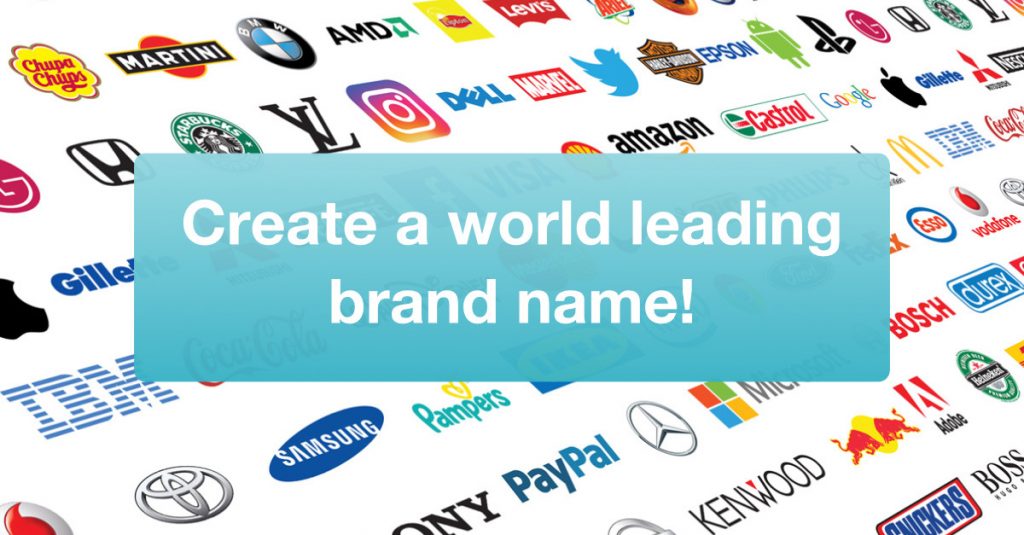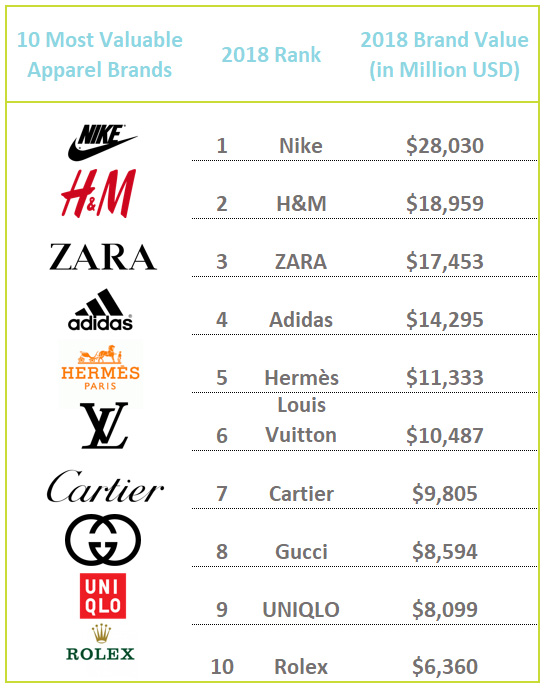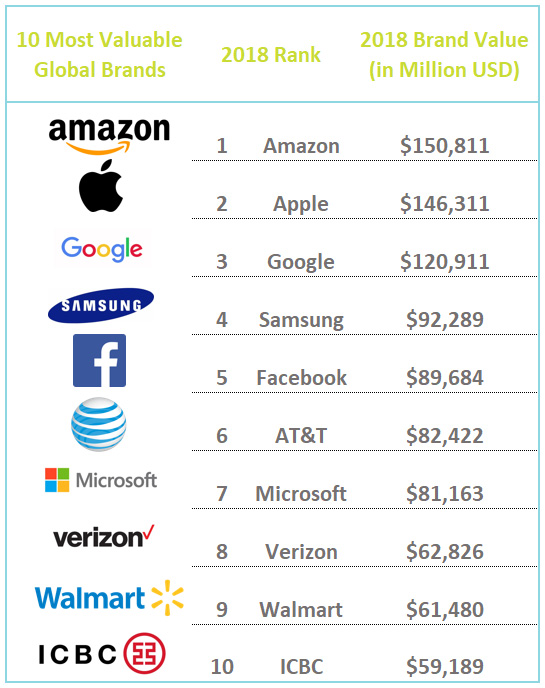Want to create a world leading brand?
The 10 most valuable global apparel brands have two things in common. As do the 10 most valuable global brands. You will learn these here.
If you’re trying to come up with names for your brand we outline a process here for you too.

Top 10 Global Apparel Brands
I am not about to say that I know the stories of each brand in depth, other than Nike. I recently read Phil Knight’s revealing book Shoe Dog.
It was a fascinating read. I had no idea of the amount of times they almost lost everything on their journey to world domination. Love them or hate them, Nike have created a mark.
A key takeaway. Entrepreneurs will experience grueling challenges on their journey to the top. Phil Knight, Elon Musk and Richard Branson have all gone all in facing lose-it-all moments. Persistence, grit and fearlessness are attributes they share.
I want you to think about each brand that you see here, from your personal understanding. That is what’s important. I’ll explain why later.
Here are 2018’s Top 10 apparel brands worldwide, with their respective value (in million U.S. dollars)

Let’s take a very simple look at what these names actually mean.
Nike ~ In ancient Greek mythology, Nike was a goddess who personified victory. source
H&M – No dictionary meaning. Abbreviation for Hennes & Mauritz. Hennes means “hers” in Swedish + Mauritz of Mauritz Widforss hunting equipment store. source
Zara – No dictionary meaning. They named the store Zorba after the classic film Zorba the Greek. After learning there was a bar with the same name two blocks away, they rearranged the letters molded for the sign to “Zara” source
Adidas – No dictionary meaning. Constructed from founder’s name Adolf “Adi” Dassler
Hermes – In ancient Greek mythology, Hermes is the messenger of the gods. Also god of trade, thieves, travelers, sports, athletes, border crossings, guide to the Underworld source
Louis Vuitton – named after founder.
Cartier – named after founder Louis-François Cartier
Gucci – named after founder Guccio Gucci
UNIQLO – Contraction of “Unique clothing”. A misread by staff in charge of registration from C to Q, so uniqlo was born. source
Rolex – No dictionary meaning. Made up to be easy pronounceable in any language.
Can you spot the commonality in the names?
There are some commonalities, but they are not common across all. They are either founder’s names, made up words to sound good, mythological figures, or acronyms.
There is a definite trend for designers to use their name in fashion. Makes sense if the brand is solely about their designs.
But what do they all have in common?
-
None of them describes what they do.
-
None of them tells their brand story through their name.
Each name holds a lots of story and value within it. And there is no confusion about who they are.
Going a little deeper, some of these words hold attributes that speak to the essence of the brand. Like Nike, meaning the personification of victory, and Hermes, messenger and travel.
There are many types of brand names. We have seen a few in this list. I am not advocating for these approaches. In fact, some of them go against our 7 keys to creating a powerful brand name.
Many of these brands grew famous in a simpler time where there was less noise and less competition. Some might say an easier time to build brands.
How about the top 10 most valuable global brands?
Let’s see what the differences and commonalities are for the top 10 most valuable global brands.

Amazon – Dictionary meaning: a river in South America. Classical Mythology, one of a nation of female warriors said to dwell near the Black Sea; one of a fabled tribe of female warriors in South America.
Originally registered under the name Cadabra, the founder changed to Amazon.com, Inc. a few months later, after a lawyer misheard its original name as “cadaver”. The founder looked in the dictionary for inspiration and settled on “Amazon” because it was a place that was “exotic and different”. Source.
Apple – Dictionary meaning: the usually round, red or yellow, edible fruit of a small tree, Malus sylvestris, of the rose family.
Incorporated as Apple Computer, Inc. The company’s name was inspired by the founder’s visit to an apple farm. He thought the name “Apple” was “fun, spirited and not intimidating”. Source.
Google – No dictionary meaning. The term itself is a creative spelling of “googol”. It is a number equal to 10 to the 100th power, picked to signify that the search engine intended to provide large quantities of information. Source.
Samsung – According to the founder, the meaning of the Korean hanja word Samsung (三星) is “tri-star”/”three stars”, and the word “three” represents something “big, numerous and powerful”. Source.
Facebook – No dictionary meaning. Originally called TheFacebook, later shorten to facebook. It comes from “face book” directories often given to American university students. Source.
AT&T – Acronym of “American Telephone and Telegraph”.
Microsoft – No dictionary meaning. Originally called Micro-Soft because what the founders agreed that what they were doing was software for microprocessors, or microcomputers. Source.
Walmart – No dictionary meaning. Named after the founder Sam Walton. One of the first stores was called “Walton’s Five and Dime”, another was called “Walmart Discount City”, then eventually the chain incorporated as Wal-Mart, Inc., then changed to Wal-Mart Stores, Inc. Source.
ICBC – Acronym of “Industrial and Commercial Bank of China Limited”.
Like the apparel brands, we have a mix of compound words, made up words, real words, and acronyms.
But what do they all have in common?
- No mythical names (new to this group)
- No founder’s names (although Walmart contains “Wal” of Walton)
- None of them describes what they do.
- None of them tells their brand story through their name.
Big takeaways from the world’s leading brand names:
If you plan to be a world leader, don’t limit yourself by being too descriptive in your name. It means you are less able to pivot and evolve as your market does.
For example, if Apple had kept computers in its name, it would be difficult to branch out to Music, App store, and Phones.
Learn from their mistakes and start with the end in mind.
Your name needs to be short, memorable, easy to say (for everyone).
It doesn’t need to hold the entire story within its meaning. You will create that through the rest of your brand.
A brand is far more than its name!
As you have been thinking about these brands, the meaning you have for each are their brand stories.
Those are from interactions with, or hearing about others’ interactions with brand elements.
Consider this list of common brand elements:
-
Purpose Statement
-
Espoused Values
-
Impact Model
-
Core Story
-
Tagline or Strapline
-
Brand Design
-
Customer Journey/Experience
-
New Customer Onboarding
-
Ongoing Storytelling
-
Product &/OR Service Design
-
Packaging
-
Marketing Messaging
-
Advertising
-
Public Relations
-
Ambassadors
-
Content Marketing Strategy
-
Social Media
-
Trade shows & Events
Add to this list anything else your brand uses with buyers.
Combined and with repeated exposure, they build what a brand name means.
How do I create a brand name for my business?
There is an art and science to crafting names. It is difficult, challenging and rewarding.
If you’re setting out without the help of a professional naming agency, there are specific steps you need to take.
When creating a name for your brand we have the following recommendations:
-
Choose an aspirational, high-level attribute that is distinctly yours. Ideally from your brand’s purpose, values or impact model.
-
Explore 1, 2 and 3 syllable words, word combinations, or compound words, that embody this attribute. And that are capable of holding the brand story you will build.
-
Make sure it is easy to say, sounds good, and is memorable
-
Make sure it is easy to spell in English
-
Avoid direct or general descriptions of your offering
-
Avoid acronyms
-
Check for trademark conflicts in every country you intend to trade
-
Check for problematic or confusing results in internet/social searches
-
Check that the primary domain names are available
This strategy will help create a name that is relevant to buyers and instantly memorable. It has a greater chance of owing a piece of crucial heart and mind space.
Choosing an irrelevent real word that already contains meaning can be much harder to remember. People already hold meaning for it.
This is not to say a name like Apple won’t work. It will just be more difficult to change the meaning for many. In our short attention span times, you need to maximize your recall-ability.
Be prepared to have many of your favourite names crossed off your list as you do your checking. Especially if you plan to trade globally.
Consult with a trademark attorney with your final selections. You want to make sure you don’t register a name that will later have legal ramifications.
Have fun with it. The exploratory stage is one of our favourite things.
But, If You Are Renaming Your Business…
Clients often get in touch with us when they feel it is time to rename or rebrand. Often there is more going on beneath the surface than the need for a new name, or refresh of your brand. Take a look at what was happenening with Evan’s business here and how we helped him fall back in love with Mondays again.
As one of the world’s leading brand naming agencies, we love helping our clients avoid costly mistakes and create world class names and brands. Get in touch with us now.





